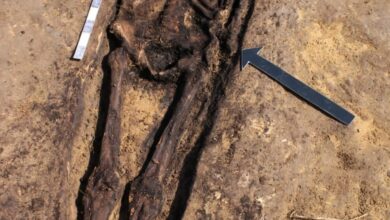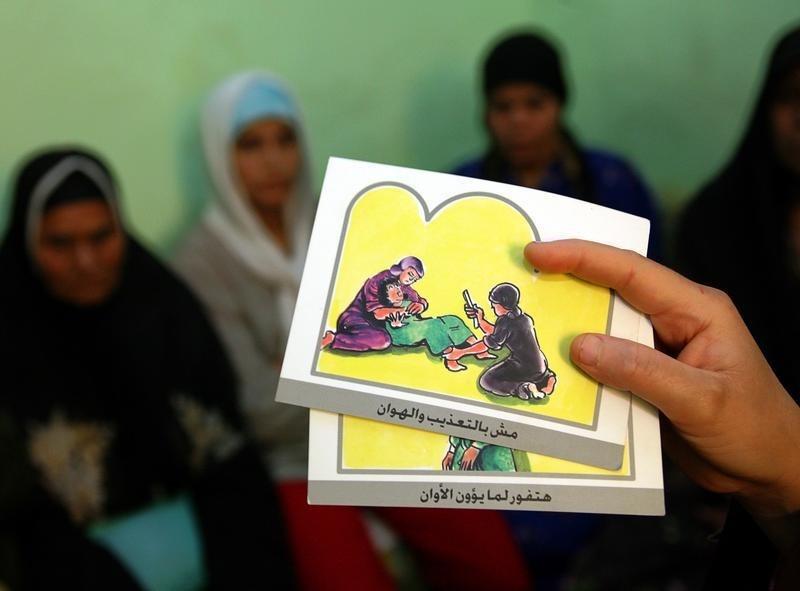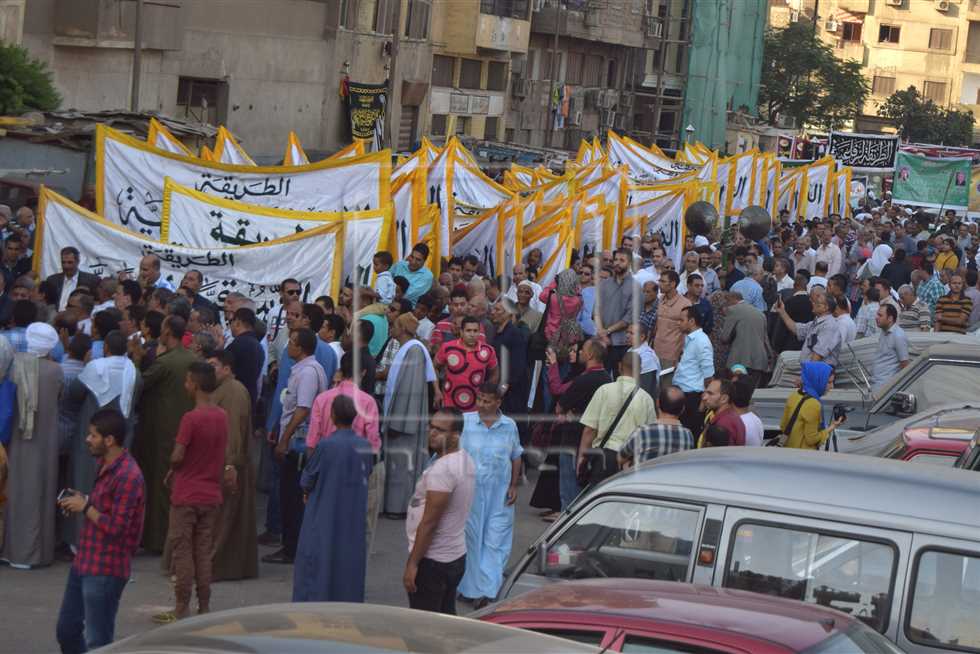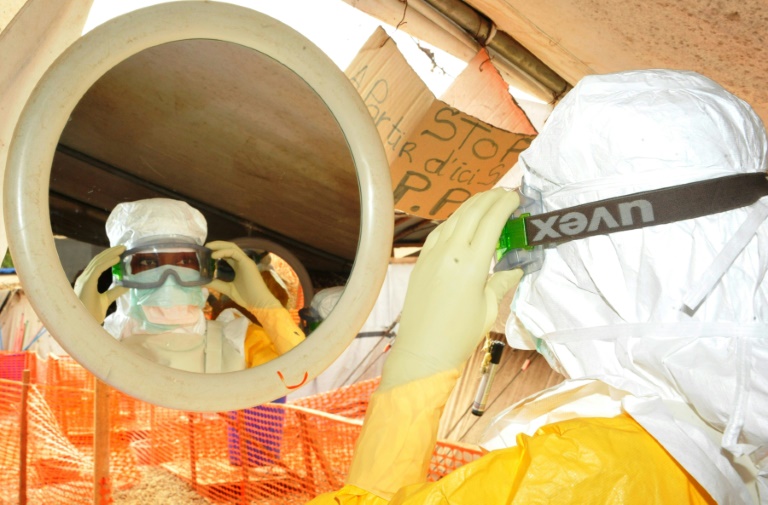“It’s a sign for the end of the world,” says Ahmad Bahgat, one of the thousands of people who came from Egypt’s countryside to celebrate the birth of Sayyida Zeinab, granddaughter of the prophet. Seated with the rest of his family on a matt laid out of the sidewalk, Bahgat and others are waiting to see if the Egyptian government will follow through on their threat to cancel the annual Sufi religious festival.
The event draws thousands of pilgrims from across Egypt who come to share their love and passion for a saint they consider the mother of miracles (‘um al-aga’ez).
But this year, Cairo Governor Abdel Azeem al-Wazir’s decided to cancel the annual celebration, dubbed “mulid” in Arabic, as a precautionary measure against swine flu. Through July 16, there have been 122 identified cases in Egypt of the A/H1N1 virus, according to the Egyptian Ministry of Health’s website.
Since the decision was announced last week, the police have been forcing to leave, dismantling their tents, taking away their gas cylinders as well as the goods they sell and even arresting some. With the so-called “Big Night” climax of the mulid scheduled for July 21, anger and frustration among the prospective attendees is growing.
In addition to blocking what for thousands is revered spiritual event, mulid-devotees like Sayid Madkour also complain the decision hurts their livelihood.
“We are the meat and they have the knives with which they butcher us,” said, Madkour, a Kafr al-Shiekh native who tours the country during the several-month mulid season, selling toys and festive paper hats to pay his way.
“I came here one month ago and bought toys worth of LE3000 to sell during the Sayyida Zeinab mulid. They took them all. Instead of canceling the whole mulid, they should provide medical support to the district to protect it from swine flu,” he said.
The mulid is a blessed annual tradition embedded in the culture of the thousands of countrymen who surmount the hardships of the trip to remember and celebrate ahl al-bayt (the descendants of the prophet).
“It’s a custom that we inherited from our parents. We come here to perform charity work and seek pardon for our sins,” said Umm Sayed, a Kafr al-Shiekh resident who has been attending the Mulid for 30 years. This year, she says, police confiscated the gas heater she planned to use to cook free meals for the attendees. “Some of us slaughter goats and distribute meat to the poor. A lot of people benefit from the gathering.”
“It’s a heritage,” says Sheikh Abdul Gelil Mohamed, who represents the Qassemeya tariqa (Sufi Muslim order) in the Southern Egyptian governorate of Qalyubiya. Various Sufi orders are spread around Egypt and surround a revered founding sheikh. A mulid is one of their platforms to perform their traditional rituals of inshad (chanting) and zikr (remembrance). Sheikh Abdul Gelil set up a tent for his followers to stay during the mulid, but he said it was dismantled by the police. Now he seeks shelter in the courtyard of one of the neighborhood’s buildings.
Gathered around a traditional rural meal of fetir (flaky pancakes) and cheese in the courtyard, Sheikh Abdul Gelil and his community are determined to stay and believe the swine flu threat is just an excuse to get rid of them.
“Canceling the mulid does not make sense,” he said. “Why didn’t the government cancel cinemas and market places then?”
For the people living in Sayyida Zeinab, opinions on the mulid’s cancellation are mixed. While some residents happily welcome the pilgrims each year, others view them as a noisy nuisance.
EgyptFeatures/Interviews




